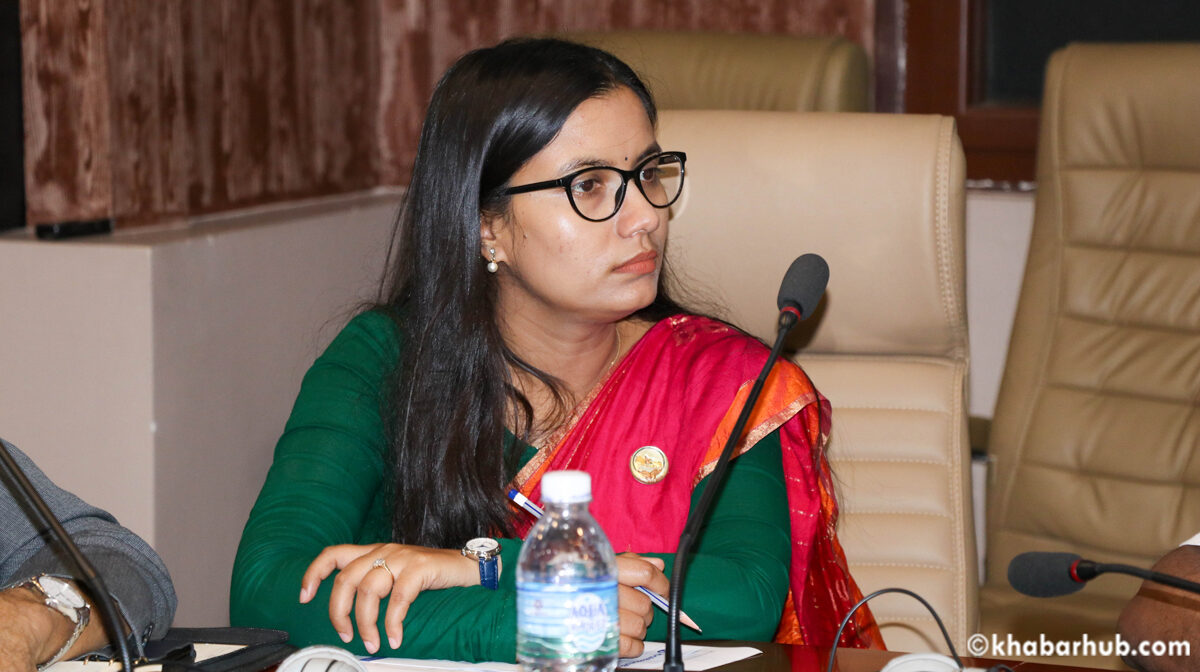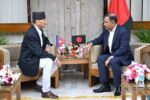After a Constitution is promulgated, it is typically reviewed every 10 years to assess its implementation.
However, there are growing calls to review the Constitution before it has been fully implemented.
This raises the question: Who is to blame? If we amend the Constitution without fully addressing its existing issues, it could be seen as a failure on our part.
The current discussions about constitutional amendments lack clarity regarding the specific problems within the Constitution.
It would be more constructive to fully implement the current provisions and then discuss potential amendments based on practical experience.
Thresholds and directly elected executives
Concerns about stability often lead to discussions about raising thresholds.
If thresholds are to be increased, it should be noted that this could favor a two-party system over a multi-party one.
Frequent government changes contribute to this instability. If the bureaucracy performs effectively, it could alleviate some of the public’s dissatisfaction with these frequent transitions.
In a multi-party system, smaller parties must be acknowledged and accepted as part of the political landscape.
Raising thresholds may inadvertently push smaller parties out, which is problematic.
Leadership should not be monopolized by the larger parties, and banning smaller parties is not a fair solution.
The question of stability should be balanced with the need to ensure representation for all political voices.
The debate over a directly elected executive is also gaining traction as an alternative to adjusting thresholds.
Many Nepali people support the idea of a directly elected executive, and political parties should not fear this shift.
Strengthening internal party democracy is crucial as well. Currently, small parties are fracturing, and debates about ordinances and party splits are becoming more frequent in Parliament.
Inclusivity and representation
One of the most challenging aspects of amending the Constitution is ensuring inclusivity.
There are questions about the representation of women, Dalits, and other marginalized groups.
While the Constitution was designed to be inclusive, the real test is how inclusivity is reflected in practice today.
Gender equality, for instance, remains a significant issue. It is not uncommon to see a lack of women in prominent positions, even during joint parliamentary meetings with the President.
The silence of leaders on issues of women’s leadership further highlights this problem. Despite discussions about inclusivity, women’s representation is often sidelined.
Similarly, the representation of Dalits and other oppressed groups remains problematic.
While there has been progress in terms of access and representation, leadership roles still pose a challenge.
The question arises whether inclusiveness should be explicitly enshrined in the Constitution if it is not yet fully implemented.
The role of bureaucracy, often referred to as the permanent government, is another area ripe for discussion. It is puzzling that there is not more debate on this topic.
While the constitution is due for review, the focus should first be on effective implementation and addressing existing issues.
Only after these aspects are thoroughly addressed should discussions on amendments proceed.
Complications surrounding provincial structure
One of the most contentious issues today is the structure of the provinces.
While this matter is sensitive and has sparked significant debate, the discussion has become increasingly complex at the grassroots level.
It is crucial to revisit the origins of this issue to understand why it has gained such prominence.
For example, the double tax system is a significant concern. Many Nepalis feel burdened by excessive taxation, which they believe squeezes them financially.
Instead of focusing solely on increasing the GDP by integrating the informal sector into the economy, the debate seems to center on extracting revenue from registered industries and factories.
With ongoing discussions about provincial structures, it is time to reassess how these structures should be organized.
We need to question whether we truly need provinces as they are currently defined, or if restructuring could make them more effective. This angle should be the starting point for future debates.
Political influence in bureaucracy
The role of bureaucracy, often referred to as the permanent government, is another area ripe for discussion. It is puzzling that there is not more debate on this topic.
In many large and developed countries, changes in government do not significantly impact the bureaucracy.
However, in our context, bureaucratic stability seems to be closely tied to political shifts. Each change in government appears to affect our bureaucracy disproportionately.
As long as political influence pervades the bureaucracy, questions about stability will persist.
Frequent government changes contribute to this instability. If the bureaucracy performs effectively, it could alleviate some of the public’s dissatisfaction with these frequent transitions.
It seems that the current ‘trend’ of political interference in bureaucratic operations exacerbates these issues.
(Edited version from the opinion expressed by Rastriya Swatantra Party MP Sobita Gautam during the program on ‘Practice of Coalition Government: Governance Impact,’ jointly organized by the Constitution Watch Group and Institute for Strategic and Socio-Economic Research — ISSR)









Comment